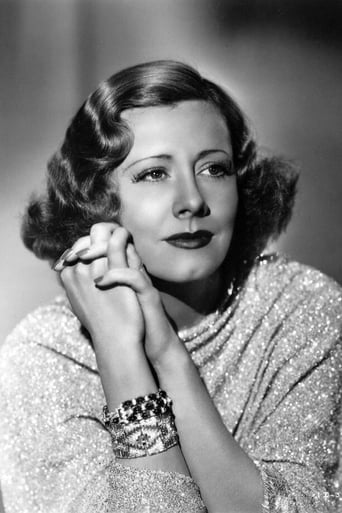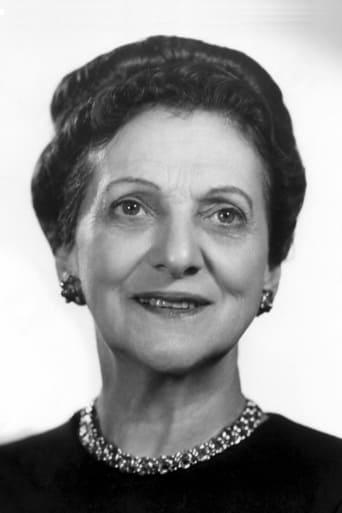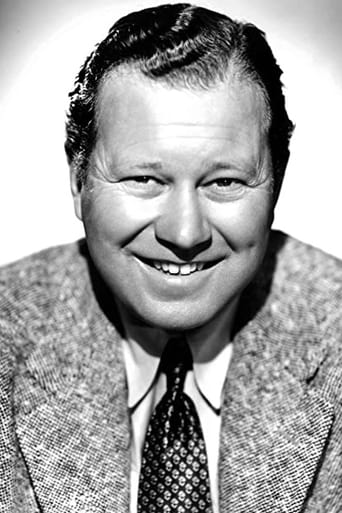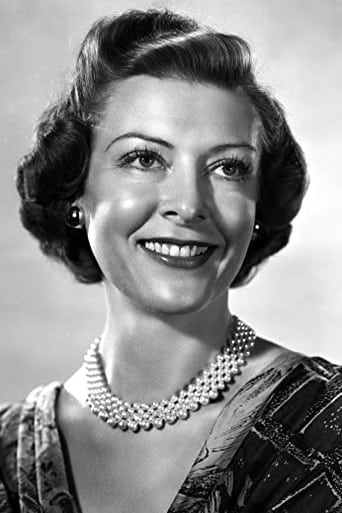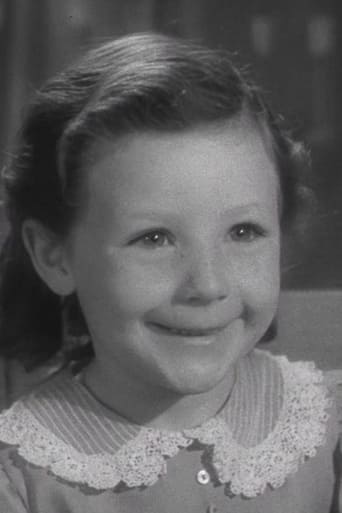Beanbioca
As Good As It Gets
Neive Bellamy
Excellent and certainly provocative... If nothing else, the film is a real conversation starter.
Suman Roberson
It's a movie as timely as it is provocative and amazingly, for much of its running time, it is weirdly funny.
lasttimeisaw
The film reunites Irene Dunne and Cary Grant for the third and the last time, after their successful pairing in Leo McCarey's THE AWFUL TRUTH (1937) and MY FAVORITE WIFE (1940). Under the tutelage of George Stevens, PENNY SERENADE is a good-natured and polished melodrama where mishaps and glee alternately emerge around an average couple Julie (Dunne) and Roger Adams (Grant). Opening with Julie assuming her deliberated departure from Roger in medias res, the narrative consists of a nexus of chronological flashback segued by various melodies in an album coined "The Story of a Happy Marriage" playing from the phonograph, as signifiers to Julie's memories, how a tuneful and glitched YOU WERE MEAN FOR ME brings Roger to her life, their sequential romance, a spur-of-the-moment marriage and their spell in Japan due to Roger's work where a seismic shock (both literally and metaphorically) leaves an irremediable missing link in their otherwise content life. Back to US, Roger starts his print business from the scratch in a small town, that missing link will be mended through adoption, a new life is put into their care and they must get familiar with parental skills (where we get great comedic moments in its slice-of-life simulation) and fight for their baby girl against their unstable financial situation, only to come in for another hammer blow that will (almost) sabotage their marriage, if not for the problematic and expedient ending, the fond memory of a departed can be so quickly and miraculously displaced by the arrival of a new one, is it a blind faith deeply entrenched in the psyche of America at then or that marriage is so unbearable if not for the presence of an offspring? One would gratingly wonder. Save for that reactionary deus ex machina, the film is a heartfelt blessing from Hollywood-land in a less glamorous and often depreciated genre of melodrama, the two leads give sterling performances here, both shorn of star vanity and completely carry the rather corny story on their own shoulders and shore it up with significant effort to sustain a touching but also realistic vibe that transmogrifies the picture with enduring charisma and yesteryear nostalgia. Cary received his first-ever Oscar nomination for this picture, his Oscar moment is that earnest plead in front of the judge, which rarely emblazons his dramatic showmanship to great extent, but Dunne, admittedly, is the fulcrum of the film here, she is self-deprecating but never shy of inner strength and orthodox femininity, quite a leading lady in her early 40s, why isn't she more worshiped by new generations? She is the convention-bucking heroine of a sexism business and an impressive 5- times Oscar nominee. Also, Edgar Buchanan and Beulah Bondi both need a shout-out for their supporting turns, the former's uncle Applejack is the bee's knees every family needs whereas the latter is so primly respectable by her sheer appearance as the rule-breaking head of the adoption faculty, lastly, to sing a little praise to director George Stevens, what an even-handed actor's director he is, his style is un-showy but after all, it is the torrid human emotion gets our attention and keeps us watching closely to his performers, that is a different kind of cinematic expertise which no one can deny.
arfdawg-1
The Plot.As Julie prepares to leave her husband Roger, she begins to play through a stack of recordings, each of which reminds her of events in their lives together. One of them is the song that was playing when she and Roger first met in a music store. Other songs remind her of their courtship, their marriage, their desire for a child, and the joys and sorrows that they have shared. A flood of memories comes back to her as she ponders their present problems and how they arose.Jesus this plot sounds depressing. The 40s were a time when Hollywood was in flux. Late 40s already saw the rise of television which would explode in the 50s. The movies made in the 40s were largely the built on post war conventions we don't hold dearly today.I found it very hard to look beyond the dated sensibility of this film. The script conventions that have been done a million times. Maybe it's just me. i don't know.I just found the movie annoying.
jc-osms
I'm a fan of Grant and Dunne's two previous "screwball comedy" features, "The Awful Truth" and "My Favourite Wife". This movie is however a million miles away from those comedy classics being an old-fashioned weepie about a couple who come together later in life and who despite the initial resistance of Grant's character to fatherhood, suffer the loss of their first child in pregnancy (due to a surprise earthquake in Japan, yep, go figure it!) and who later adopt a baby girl who unsurprisingly becomes the centre point of their lives.As a childless husband, I found I couldn't relate to the tribulations of this couple who in the end can only co-exist if there's a child to act between them as the family glue, the happy ending emanating unsurprisingly from another phone call from the orphanage just as they're about to separate for good.It's all very sincere and earnest, but it's also very slow and undramatic, "high-points" of the film being Dunne's excruciating attempt to put a nappy on the baby and the couple's adoring attendance at the now infant girl's first Christmas nativity.Edgar Buchanan as the silly-named Applejack gets a sympathetic part as their best friend and Beulah Bondai likewise as the orphanage matron who they win over to their side despite their struggling poverty.Grant and Dunne try hard to put across this sentimental tosh with conviction but they seem too old for their parts and occasionally come over as gauche and unconvincing. Grant gets a big scene where he tries to convince the "by-the-book" orphanage governor to let them keep their child, but like so many other scenes, it goes on too long, lessening its dramatic input. Director Stevens uses as the, I hesitate to call it narrative drive, dissolves of Dunne playing "their tunes" on record discs, this gimmick palling quickly as the dull story kicks in.While I was pleased to finally see a rarely screened Grant movie, it probably isn't one I'll want to see again. It's not a terrible movie, but it is, alas, quite a boring one.
kevin_m_sullivan
Cary Grant is one of my favorite actors of the twentieth century, and thus, it is difficult to give this film a bad review. It is not that it was poorly made or the actors were inadequate, but I think the storyline used nostalgic sentiment as a sort of crutch to move along, and that often happened quite slowly. The use of flashback is well done, but seemingly overplayed. The photography in the film was not really above-average, but I also don't have any complaints with it. I suppose if nothing else, Penny Serenade is a perfect example of how pace and editing can make or break a movie, and for me, it didn't quite make it.




